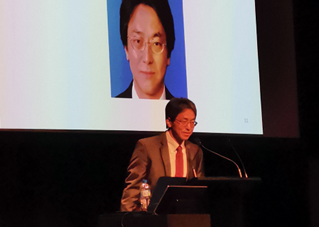Computer Science Professor wins Fuzzy Systems Pioneer Award
Professor Hisao Ishibuchi from the Department of Computer Science and Engineering (CSE) at Southern University of Science and Technology was honored last week when he received the Institute for Electrical and Electronics Engineers – Computational Intelligence Society (IEEE CIS) Fuzzy Systems Pioneer Award. At their annual conference in Wellington New Zealand, the 2019 IEEE Congress on Evolutionary Computation announced that Professor Hisao Ishibuchi was the only winner of this year’s award.

Professor Hisao Ishibuchi also won 2nd prize in the “Best Papers” competition, and came first in the FML-based Machine Learning Competition for Human and Smart Machine Co-Learning on Game of Go in conjunction with a team from Osaka Prefecture University.
IEEE CIS has existed in its current form since 2003, with it previously existing as a committee of IEEE as early as 1987. It is a professional society specializing in intelligent computing, dedicated to the theory, design and application of computational methods inspired by biology and linguistics.
The IEEE Computational Intelligence Society Fuzzy Systems Pioneer award recognizes significant contributions to early concepts and sustained developments in the field of fuzzy systems. It is considered annually, and may be given to an individual or small group. They must have contributed to the theory, technologies, and/or applications of fuzzy systems by inventing new technologies, creating innovative technical developments, implementing new products, or managing innovative product design or production processes.
Professor Hisao Ishibuchi is a national special expert and an IEEE Fellow. His research interests include artificial intelligence, evolutionary multi-objective optimization, evolutionary machine learning and fuzzy systems. He has published 200 international journal papers and 500 international conference papers. His total citations according to Google Scholar exceed 24,000, with an H-index of 68.
He has served as Vice President of IEEE CIS and is currently the Editor-in-Chief of IEEE Computational Intelligence Magazine, a leading academic journal in computational intelligence. He is also the Associate Editor of IEEE Transactions on Evolutionary Computation, IEEE Transactions on Cybernetics, IEEE Access and other authoritative journals.


